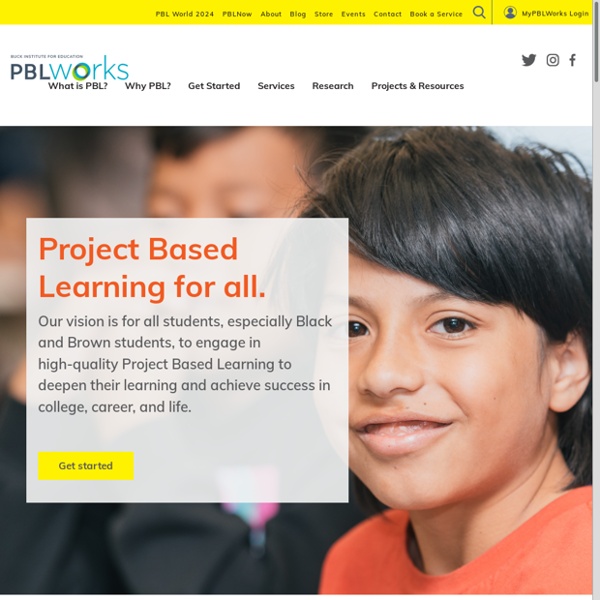



Virtual Teacher Australian History Trove Pictures of Australia Take a look at the Picture Australia site. PBL Gallery Home | Getting Started | Modules | Resources | About Us View the work of teachers who developed and implemented PBL units/mini-units. Feel free to download and use the PBL as a template for your work with students. 35 Educational Resources to Encourage Inquiry & Inventive Thinking This is a sponsored post. I’ve scoured the internet, including all of my favourite social media sites, to bring you a fantastic collection of online inquiry and inventive thinking resources that I know will inspire and motivate both you and your students. The collection includes Lego, science, practical activity ideas, engineering, videos, animation, technology and a tonne of fun facts – so there is sure to be something for everyone!
Warmers, fillers & coolers Warmers Below is a list of warmer/cooler/filler/game activities in no particular order. If you have any warmers you'd like to add to the list then please send them to via the Contact page Aims: - to introduce a theme - to relax stds after a hard day's work - to wake stds up after a hard night - to wait for late arrivals - to provide a break in the lesson - to provide humour - to provide oral fluency practice - to finish the lesson on a light note 1. Persuade each other that their favourite colour, animal, film, etc. is more important, better, etc 5 Ways Smart People Sabotage Their Success Executive Summary Raw intelligence is undoubtedly a huge asset, but it isn’t everything. And sometimes, when intellectually gifted people don’t achieve as much as they’d like to, it’s because they’re subtly undermining themselves. Five things smart people tend to struggle with: Smart people sometimes devalue other skills, like relationship building, and over-concentrate on intellect.
What is global education? The heart of global education is enabling young people to participate in shaping a better, shared future for the world. Global education emphasises the unity and interdependence of human society, developing a sense of self and appreciation of cultural diversity, affirmation of social justice and human rights, as well as building peace and actions for a sustainable future in different times and places. Global education promotes positive values and assists students to take responsibility for their actions and to see themselves as global citizens who can contribute to a more peaceful, just and sustainable world. Australian global educators place particular emphasis on developing relationships with our neighbours in the Asia–Pacific and Indian Ocean regions. Global Perspectives, A framework for global education in Australian schools is a concise, practical and philosophical guide to including a global perspective across the curriculum.
Five Keys to Rigorous Project-Based Learning Voiceover: How will today’s children function in a dangerous world? What means will they use to carve the future? Will they be equipped to find the answers to tomorrow’s problems? Teacher: When you think about traditional learning you think of a student sitting in a classroom and being talked at. Teacher: Now I imagine a lot of you are still thinking... Social Media for Teachers: Guides, Resources, and Ideas Although students are evermore connected to the social web, many of these networks remain out-of-class digital playgrounds where students congregate. In a 2014 survey of 1,000 teachers, just one in five said they use social media regularly with students. Of course, it can be a challenge to incorporate social media into lessons. There are many gray areas for teachers to navigate, like setting guidelines, accessibility at school, and student safety. But to help teachers navigate this ever-changing landscape of social media tools, here are some of the best guides on the web for four popular networks, Facebook, Instagram, Twitter, and Pinterest.
Famous People A-Z Activity Village has a large and growing resource of famous people resources - from colouring pages to "learn to draw" tutorials to fun and quirky worksheets that are designed to get your kids interested! Here you can find a listing of all the famous people, ancient and modern, we have on the website, in first name order. Explore all our Famous People ‘The Empathy Exams,’ by Leslie Jamison “Empathy,” she writes, “means realizing no trauma has discrete edges. Trauma bleeds. Out of wounds and across boundaries. Sadness becomes seizure. Empathy demands another kind of porousness in response.” NZ Curriculum Online Teaching as inquiry is a fundamental part of ensuring success for all the students in your class. Here you will find ideas, resources and tools to support your inquiry journey, as well as school stories to help provide inspiration and promote discussion. This resource is presented in a way that will suit you if you are new to the inquiry process, or if you have experienced it before. The resource gives you the option to look at what is most relevant to you, revisit for more information, and be challenged by new ideas. Teaching as inquiry-FAQsThis supporting blog post takes a closer look at teaching as inquiry, answering five commonly asked questions.